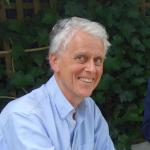Synthetic biology gives scientists unprecedented powers to reshape the genomes of living organisms. The technologies of gene editing are starting to transform the agricultural and biotechnology industries, with numerous applications in areas such as public health, pest control and food production. Their use in the field of nature conservation is also being discussed, for example to control invasive species, to fight wildlife disease, or even to bring extinct species back from the dead. How should conservationists think about such interventions? Is gene editing a vital tool in the conservation toolbox, or a threat to wild nature? When scientists can use synthetic biology to reshape genes more or less at will, what does the conservation of nature mean?
About the speaker
Professor Bill Adams is Claudio Segré Chair of Conservation and Development at the Graduate Institute of Geneva. He held the Moran Chair in Conservation and Development in the Department of Geography at the University of Cambridge from 2006 to 2020.
Professor Adam’s research explores relations between society and nature from the perspectives of political ecology and environmental history, and has particularly focused on issues of sustainability and conservation. His books include Against Extinction: the Story of Conservation (Earthscan, 2004) and Green Development: Environment and Sustainability in a Developing World (Routledge, 4th edition 2020). His current research focuses on the ways in which novel technologies shape ideas about nature and its conservation. His book with Kent Redford, Strange Natures: Conservation in the Era of Synthetic Biology, is published by Yale University Press in June 2021.
Welcome remarks by Professor Tim Swanson, André Hoffmann Chair in Environmental Economics, CIES Co-Director.
Moderation by Professor Professor Marc Hufty, Development Studies, CIES faculty member.




